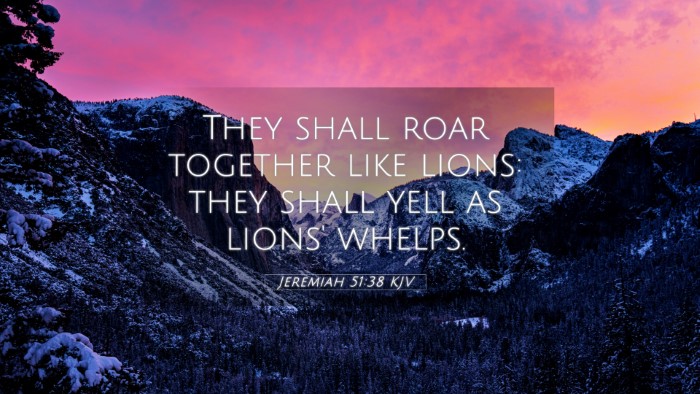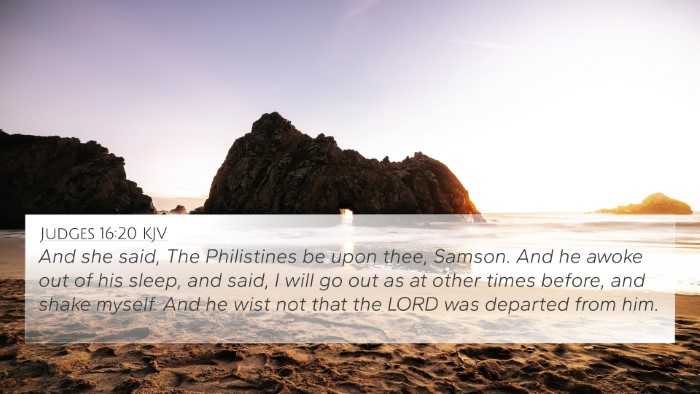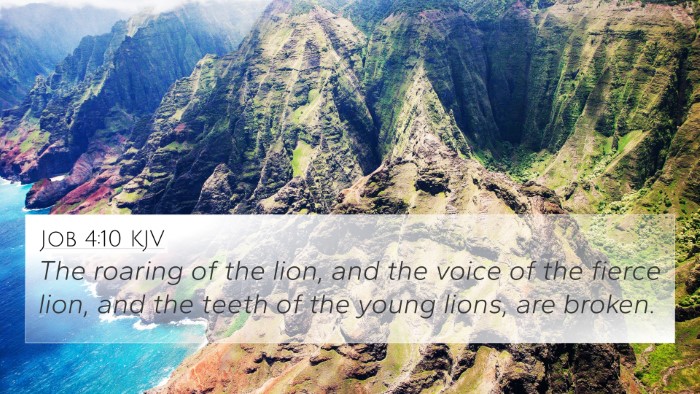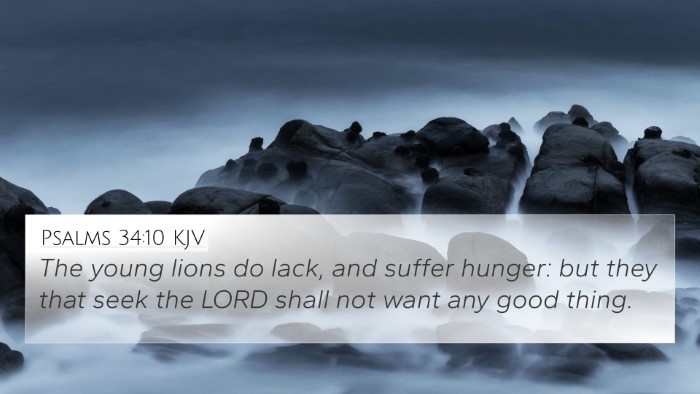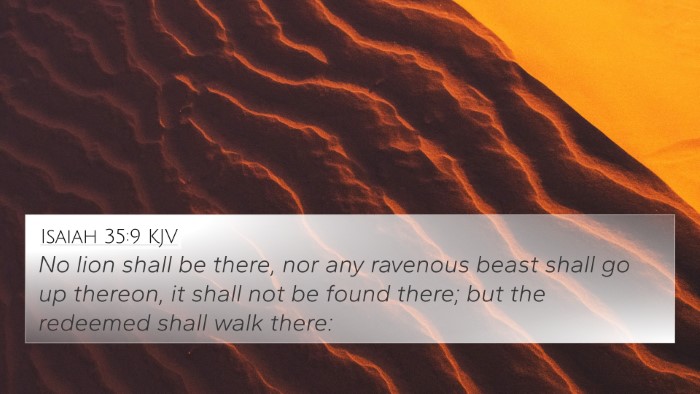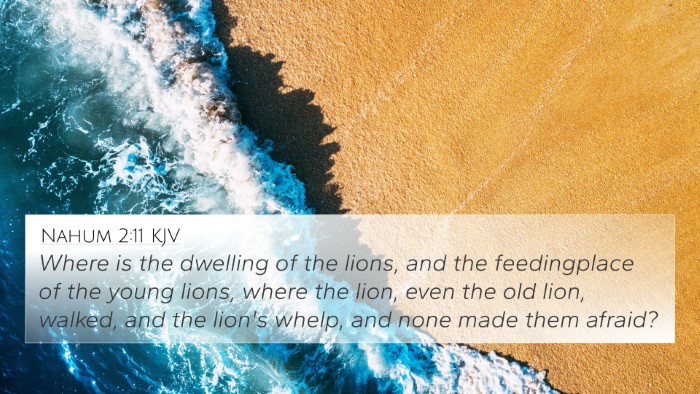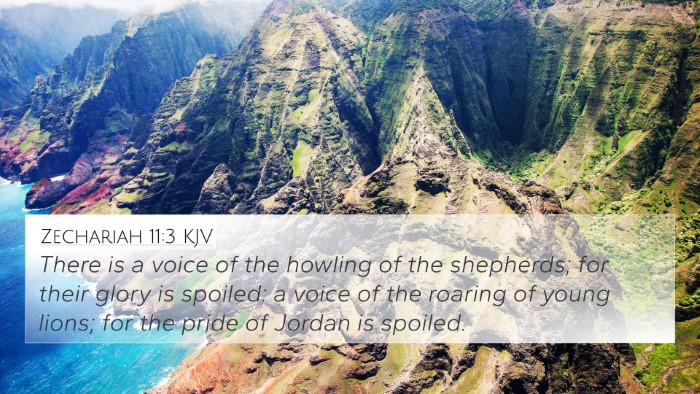Understanding Jeremiah 51:38
Verse: "A drought is upon her waters; and they shall be dried up: for it is the land of graven images, and they are mad upon their idols." - Jeremiah 51:38
This verse belongs to a larger prophecy concerning the judgment of Babylon, representing the consequences of idolatry and spiritual corruption. Below, we explore a summary of the insights from various public domain commentaries, focusing on the themes surrounding this verse.
Interpretation and Summary
The essence of Jeremiah 51:38 can be seen as a severe condemnation of Babylon for its idol worship and unfaithfulness to the true God. The passage illustrates the following key points:
- Judgment on Idolatry: The 'drought' symbolizes desolation and the impending judgment that will befall Babylon for its worship of false gods (Matthew Henry). The drying up of the waters suggests a complete withdrawal of divine blessing and support.
- Graven Images: The reference to 'graven images' emphasizes the futility and folly of idolatry. Babylon’s reliance on its idols is contrasted with the living God, who calls His people to worship Him in spirit and truth (Albert Barnes).
- Madness of Idol Worship: The phrase 'mad upon their idols' indicates the irrational nature of idolatry. The people of Babylon are depicted as being consumed and driven to madness by their attachment to their idols, which ultimately leads to their downfall (Adam Clarke).
Connections and Cross-References
This verse can be understood in relation to other passages that underscore similar themes of idolatry, divine judgment, and the futility of false worship. Here are key Bible cross-references related to Jeremiah 51:38:
- Isaiah 44:9-20: A powerful denunciation of idol makers and the absurdity of bowing down to crafted images.
- Jeremiah 10:14: The folly of those who take pride in their idols; they are 'brutish' and possess no true understanding.
- Ezekiel 14:3: God explains that idolaters will not be heard because of the idols in their hearts.
- Revelation 18:2: A future prophecy about the fall of Babylon, linking this warning with the ultimate judgment on sin.
- Habakkuk 2:18-19: Challenging the idols and their lifelessness, emphasizing that they cannot respond to worship.
- Acts 17:29: Paul’s proclamation that we should not think of God as an image made by human hands, which connects well with Jeremiah's sentiment.
- Psalm 115:4-8: Discusses the nature and destiny of idols, aligning with the theme of divine judgment against false gods.
Thematic Analysis
This verse connects with broader biblical themes regarding the relationship between humanity and divinity:
- The Temptation of Idolatry: Both the Old and New Testaments address the lure of idolatry and the need for faithfulness to God.
- Consequences of Sin: The principle of reaping what one sows echoes throughout scripture, finding a quintessential expression in this prophecy (Galatians 6:7).
- God's Sovereignty: Despite the apparent success of idol worshippers, God asserts His authority over nations and idols alike.
Tools for Bible Cross-Referencing
Understanding the connections between scripture is enhanced by utilizing various tools for cross-referencing, including:
- Bible Concordances: Comprehensive resources that list verses based on keywords, allowing for thematic explorations.
- Bible Cross-Reference Guides: Guides that provide suggested verses related to specific topics or themes, facilitating in-depth studies.
- Cross-Reference Systems: Structured methodologies for following thematic links across both Testaments.
Conclusion
Jeremiah 51:38 serves as a crucial reminder of the consequences of turning away from God and the folly of idol worship. Through comparative analysis and thematic exploration, the interconnections between various biblical texts illustrate the continuity of God's message throughout scripture.
By studying such passages, believers can develop a deeper understanding of Biblical themes and the importance of worshiping God in truth, using cross-referencing as a powerful tool to enrich their study of the Word.

